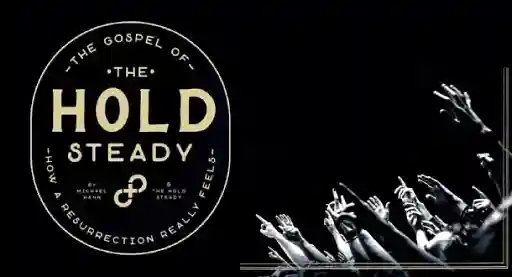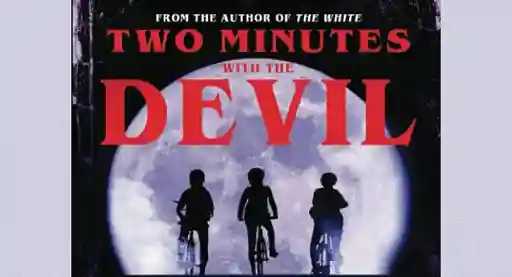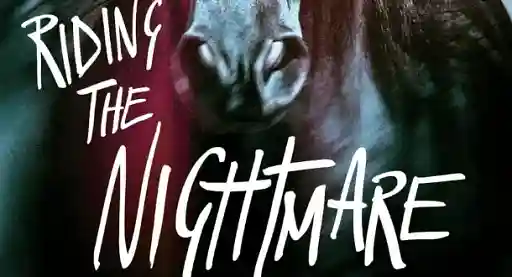Martin Amis’ new novel, Lionel Asbo: State of England, might as well have a big red target printed across its very fetching dust jacket. Amis, one of the bright literary lights of Eighties England, now endures more flak than adulation, seemingly emerging to make one more wrong-headed comment, or signify his disconnection with modern times. In this, he’s very much like the late Christopher Hitchens (a close friend, and the dedicatee of this new novel), a late-life ferocious critic of Islamism (or, as some would allege, Islam full stop) and edging politically rightward. Much of this may be unfair, but the fact remains: Amis brings a myriad of associations just at the mention of his name: Islamophobia, Hitchens, his father Kingsley, moral and physical decrepitude (his characters that is), suspicion of the working class, and feuds with other authors, notably Julian Barnes. Thus, every one of his novels carries a weight. Here to, attached to Lionel Asbo, is a motley of associative strings, distracting from the work itself.
Lionel Asbo in particular arouses outright suspicion. That rancorous subtitle induces eye-rolls a-plenty, satiric as it may be. And it is. State of England, this is not, not really. For non-Limeys, an ASBO (Anti-Social Behaviour Order) is issued to commiters, a high proportion of whom are not legally adults, of relatively minor crimes. ASBOs are, to many, a quick shorthand for lazy journalists and commentators. Not infrequently, ASBOs can be found in close proximity to the phrase “scum of the earth”. Typically, they’re considered ragged emblems of the penniless youths, so bored that they've all turned into street thugs and taken to stabbing old ladies just to alleviate their boredom. Yes, this is a class issue. This is England. Everything is.
Lionel, the titular "truly dreadful person", has assumed the ASBO label as his own surname. This is a character that takes the “scum” to its extreme. He’s proud to be stupid, heavy-drinking, violent, prefers pornography to women, raises vicious dogs, and instructs his fifteen-year-old nephew to carry a knife. He’s the twenty-first century equivalent of a cackling mustache-twirling villain, leaving a helpless victim tied to the tracks as a steam train chugs our way. His nephew, Des, does not hide from his intelligence. He can’t help but admire his uncle, who, in his way, genuinely cares about him. Unfortunately, Des has put himself in the situation of having a sexual relationship with his own grandmother (and Lionel’s mother). She’s not even forty. Lives are lived fast and brutally on estates in fictional Diston, the sordid underbelly of London.
Amis has a strange way of plotting, in that the characters are left to drift through a vague jumble of scenes, stepping in and out of various scenarios. Cohesion isn’t a quality one would typically use for Amis’ work. That’s not necessarily a problem, but it does leave one occasionally forlornly watching as a potentially fascinating plot thread is passed by, like an adrift boat helplessly watching the slow fade of dry land. In the novel’s second part, Lionel wins 140 million pounds in the lottery. Here, Amis is on full whack. The disgraceful Lionel makes no effort to help his destitute friends and family. He buys nothing but the most expensive food and clothes, lives the high life, but finds it strangely unsatisfying. For a brief moment, as he feels self-conscious at dinner, getting drunk on champagne (in pint glasses) and slathering caviar with his beloved Tabasco sauce, there’s a crack in his facade. He fears the judging gaze of society:
Champagne in a beer mug? Are you a cunt? They staring now! No they ain’t! They thinking you off to the boxing with the Duke of Edinburgh! No they ain’t! They laughing at yer – they pissing theyselves!
He even hires a PR team to improve the public’s perception of himself. The clash between high and low society is a topic ripe for satire (especially timely, as the UK is governed by the upper classes, and the recession is squeezing hard on the poor). But Amis never goes there. It’s touched on, but dismissed. The book floats on. As a novel? I didn’t hate it, although I fully expected to. There are few equals to his sheer mastery of language. The floatiness of Lionel Asbo’s plot doesn’t mean it’s inherently flawed. It’s the peculiar nature of his scrutiny. Amis clearly has affection for the sociopathic Lionel, and suggests at a greater intelligent and kindness beneath his inexorable veneer. But does the affection spring from genuine care, or from glee at creating such a monster? It’s too simple to position Lionel as a straw man, a false representative of a lazy and ignorant underclass, but it’s not completely untrue either. This is a grotesquerie, free of any real scrutiny on why exactly people like Lionel exist (if they even do), and what the social implications and causes are of this.
Let’s go back a little in Amis’ career. Probably his most famous and well-regarded novel is Money: A Suicide Note, starring the hedonistic director John Self as he staggers through the filming of his first movie. Whatever one’s feelings are to the book, its appeal is clear to see. John Self straddles the gross excesses of the Eighties and dissects the strange mutations of celebrity cultures. Vices pile up around Self; at one point he tells us that unless he specifically informs us otherwise, he’s always smoking another cigarette. His later novel London Fields also struck the dark heart of Thatcher Britain, memorably described by Simon Schama as “stained with punk spit and pub puke”. Memorably, Time’s Arrow tells the story of a Nazi doctor’s life backwards, creating a sinister and inevitable reverse trajectory into the holocaust. A risky and ambitious prospect; in my opinion, Amis pulls it off.
What exactly could the reasons be for Amis’ choice of target? Outcries on the author’s views and quotes are legion. The first page of Terry Eagleton’s Ideology: A Short Introduction is concerned with unpacking the ramifications and implications of Martin Amis’ occasional diatribes against Islam. This might be unfair, but they're never ripped beating and bloody from his fiction. These are all on record, in interviews with reliable publications. Amis, by his actions, rebuffs the actions that a writer is only concerned with his or her work, and can’t and shouldn’t be a public fount for soundbytes on contentious issues. Anyone who reads Lionel Asbo can’t deny that, however fantastical or obverse the view might be, it’s very much meant to analyse the here and now. Current truths are stretched and distorted so that the story becomes science-fiction. Moments of sympathy and heart creep through, but for the majority a nasty feeling crawls across your brain: Martin Amis really finds these people and their lifestyles disgusting.
Amis doesn’t owe us anything. There’s no manifesto to be at the cutting-edge of incisive satire with his signature scrawled at the bottom. He can write whatever he wants, obviously. It’s the media-rankling persona he creates, the clear desire to unsettle and shock that causes disdain from many reviewers. Like it or not, Amis has positioned himself as an enfant terrible of literature, his writing a scathing post-mortem on the bloated corpse of modern society.
There’s a saying/idiom/cliche that has various forms, but boils down to: Literature should comfort the disturbed and disturb the comfortable. Here, at the height of his fame and experience, Amis chooses to disturb the disturbed. Worse, he's picking at a stereotype that, while imagined, has a real and volatile effect on how the working classes are thought of in Britain. Amis chose this topic. This is what he feels it’s imperative to write about. There is no objective duty for writers to serve society as a kind of cultural analgesic. Still, it’s disheartening that a man of such talent and perspicacity has chosen the bullied and downtrodden as his subject, and made a grotesque strawman in Lionel Asbo. Regardless of intent, it feels like stirring up a hornet’s nest of class-hatred.
Age can wither us; maybe acceptance and renown speeds the decay. Amis’ distrust and fear of the other – be it the underclasses or Islam – no longer speaks on behalf of a generation. It’s punching at shadows, it’s cruel laughter and eye-rolling. There may not be an injunction for writers to choose targets deserving of condemnation, but a sense of engagement, of genuine concern for other humans, is what sets light to the best satirists. Now more than ever, the comfortable need disturbing and the disturbed need comforting. To see the disconnectedness of Martin Amis makes one sad, that one of the greats has ceased to speak for us. He spoke, in an interview, of an imagined reader that he wrote for:
I think one shouldn't pussyfoot, and just say that you write the stuff that you would like to read. So you write for yourself, no doubt about that. But I do have a sort of romantic idea of someone in their twenties, of a certain bent, and when they pick up a book by me, they think--as I have done on several occasions--'Ah, here is one for me. Here is a writer who I'll have to read all of, because they're speaking directly to me, and they're writing what I want to read.
A new generation will supplant Amis as the literary commentators of our generation. There are probably already a great deal. Nevertheless, it’s a shame to have lost Amis. Let him stand as a reminder: that though talent and style will remain, to grapple with the world and turn a satiric mirror upon it requires dedication. Otherwise, you’re just a condemning reactionary. You’ve become as bad as Lionel Asbo.
Image via The Telegraph

About the author
Jack is a graduate of the University of Warwick. His current project is a surreal biography of the band Paris and the Hiltons. He lives in the UK, where he founded the netlabel Portnoy Records. He can't juggle yet, but really is trying very hard. Often he tells people he's ten feet tall, even when they're standing in front of him, which makes for awkward pauses. He writes incoherent thoughts and opinions at the International Society of Ontolinguists.








